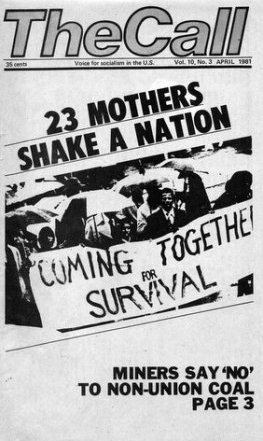
First Published: A Letter to the Editor in The Call, Vol. 10, No. 3, April 1981.
Transcription, Editing and Markup: Paul Saba
Copyright: This work is in the Public Domain under the Creative Commons Common Deed. You can freely copy, distribute and display this work; as well as make derivative and commercial works. Please credit the Encyclopedia of Anti-Revisionism On-Line as your source, include the url to this work, and note any of the transcribers, editors & proofreaders above.
As a reader (sometimes) of The Call over the last eight years, I was pleased to see the editors open up the pages of the newspaper to a vital debate on the past errors and future goals of the revolutionary Marxist trend. You are to be commended.
Comrade Hamilton’s article (Feb. 1981) has certainly sparked some discussion. The questions he poses are important ones for our movement.
However, the two responses in the March issue were disappointing. Both tended to use the method of setting up straw men and then flailing away–ever so correctly–at them. I hope, as the debate continues, writers will focus in on more substantive issues.
One other comment on D. Wane’s article. I was quite shocked to see a materialist call the mass killings under Stalin, Pol Pot and Mao “KGB and CIA lies.”
Surely Comrade Wane is not disputing the existence of the Gulag. Stalin’s deviations in this area arc fairly well undisputed.
As for the Pol Pot regime, Prime Minister Khieu Samphan told Yugoslav and American journalists in February 1980 that 10,000 people wrongly died from execution by the state. In September 1980, Samphan and Foreign Minister Ieng Sary declared that many thousands more died from the now-admit-ed ultra-left policies of forced labor, break up of the family, denial of religious freedoms and the forced evacuation of the cities. These figures are quite high for a country with a population of only seven million.
As for Mao, the last ten years of his leadership, the period of the Cultural Revolution, saw the deaths of tens of thousands to hundreds of thousands. In the indictment of the Gang of Four, some 35,000 deaths are accounted for. Beijing Review put the number of deaths attributable to Kang Sheng, who was not indicted with the Gang, in the tens of thousands more.
Neither the past abuses of socialist legality nor the ongoing struggle to find a truly democratic socialism should be underestimated. They are difficult questions, both in summing up historical experience and in formulating new visions. But it will not do at all to behave like an ostrich and pretend certain things are super-spy fabrications or even to rule certain questions out of bounds. Millions of people died unnecessarily. That is a fact.